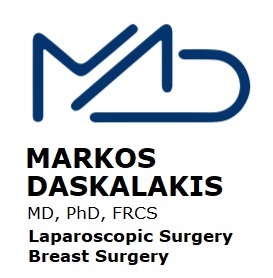Sleeve gastrectomy (SG), which, thus far, is showing good resolution of comorbidities and good weight loss, shows increasing popularity among bariatric surgeons. The aim of this study was to evaluate clinical outcome and the gastric emptying of solid foods, 24 months after SG.
Methods
Fourteen morbidly obese patients, four males and ten females, median age 41 years (range 29–65), median body mass index (BMI) 49.46 kg/m2 (range 41.14–55.63), who underwent SG for weight loss, were studied prospectively. Nine patients underwent gastric emptying studies, using radioisotopic technique before, 6 months and 24 months after the operation. The remaining five patients underwent gastric emptying studies, 6 months and 24 months after the operation.
Results
A significant reduction in patients’ weight and BMI was evident at 6, 12 and 24 months postoperatively. In the nine patients who underwent gastric emptying studies pre-, 6 and 24 months postoperatively, the T-lag phase duration significantly decreased, following the SG, from 17.30 (range 15.50–20.90) min, to 12.50 (range 9.20–18.00) min at 6 months and 12.16 (range 10.90–20.00) min at 24 months postoperatively (P < 0.05). The gastric emptying half time (T1/2) accelerated significantly postoperatively from 86.50 (range 77.50–104.60) min, to 62.50 (range 46.30–80.00) min at 6 months and 60.80 (range 54.80–100.00) min at 24 months after SG (P < 0.05). The percentage of gastric emptying (%GE) increased significantly postoperatively, from 52 (range 43–58) % to 72 (range 57–97) % at 6 months and 74 (range 45–82) % at 24 months, following SG (P < 0.05). No differences in gastric emptying were observed, when values at 24 months were compared to those at 6 months postoperatively. When the whole group of 14 patients was studied, there were also no significant changes in T-lag, T1/2 and %GE between 6 and 24 months postoperatively.
Conslusions
Our study indicates the constant effect of SG in the acceleration of gastric emptying of solids, which occurs faster, not only in short but also in long-term postoperatively. Such effects on gastric motility, in combination with the reported alterations in gut hormones, may explain how this ‘food limiting’ operation results in weight loss.
Publication date: 2008/10/1 - Journal: Obesity surgery - Publisher: Springer-Verlag Description
Authors: John Melissas, Markos Daskalakis, Sophia Koukouraki, Ioannis Askoxylakis, Maria Metaxari, Efstathios Dimitriadis, Maria Stathaki, John A Papadakis



